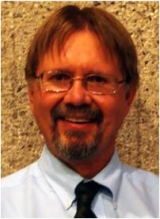They say the ironies never cease, but a most memorable example was revealed four years ago in USA Today on October 27, 2006. On the front page, scaring the bejeepers out of us, was “Where will everybody live?” The demand for housing was bursting in concert with the American population. Meanwhile, at the top of the online version was “Housing Woes Drag Down GDP” from Reuters. It’s hard to tell what scares us more, rapid growth or slow growth!
The irony was running strong that fateful week. On October 24 the U.S. population reached 300 million, and the very next day the Dow rose above 12,000 points. Knashing of teeth on the one hand, jumping for joy on the other.
Our psychological health on the issue of growth warrants some serious analysis, and maybe even some therapy.
All else equal, a growing economy (as reflected by the Dow and GDP) is a natural function of population growth. More people means more labor and production, more buyers and consumption. So, those of us who lament the population milestone while celebrating the Dow have some thinking to do about priorities. Do we want more in our pockets if it means our kids will inhabit the nation we’re afraid of – you know, the one where we ask “Where will everybody live?”
Perhaps it would help us resolve this psychological dilemma by digging deeper into our fears of population growth. Exactly why are we afraid of it? The first answer that might come to mind is environmental quality.
More people means not only more labor and consumers, but more mouths to feed, roads to build, fuel to burn, wells to sink, and sewage to dispose. And ultimately, with growing populations around the globe, competition for resources brings war. Peace on Earth is the Summa Bonum for stabilizing population.
Understandably, then, we want a stabilized population, but many of us want it with a catch: we want it coupled with economic growth. That’s our win-win scenario! We get more money, goods and services without the environmental destruction and social pressures wrought by a growing population.
Or do we? This seems to require more intensive self-analysis, as individuals and as a body politic.
When the population grows, it is not as if the people are ghosts, inhabiting the nation and the planet in some ethereal capacity with no footprint. If that were the case, it wouldn’t matter if the population was 300 million or 300 trillion! Indeed, the cumulative footprint is precisely why we are concerned with population growth to begin with. Yet the Dow is not so ethereal either. Who would cheer its increase if all it amounted to was evermore “ether?”
Now if we want a stable population, yet we still want economic growth, what we are asking for is that our people – the current population’s worth – impress upon our environment a bigger footprint than they presently do. Bigger houses and cars, more roads, more entertainment, and all the goods the Dow represents: machines, construction materials, chemicals, and certainly more pollution.
Where does the footprint land? Not to be quaint, but surely it lands from the mountains, to the prairies, to the oceans white with foam. It lands on America and it lands on Earth. It pollutes our rivers and crowds our coastlines. It takes away habitats and endangers our species. It’s gotten so big it reaches to the skies, pounding away at the ozone layer and depositing greenhouse gases. It’s got our climate warming, our icecaps melting, and our sea levels rising.
I propose that, every October, we pause to consider our conflicting reactions to the milestones of October, 2006. Certainly, one of those reactions must be appropriate.






